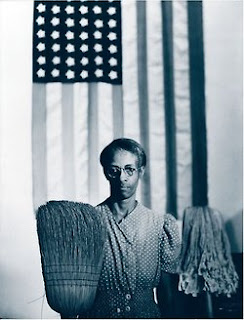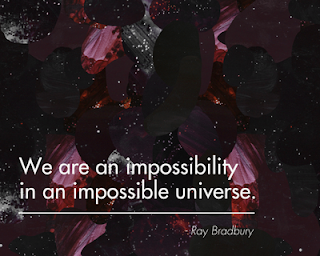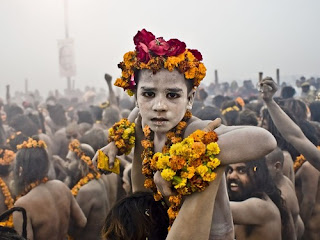
i'm reading (all my posts seem to start this way) Incidents in the Life of a Slave Girl by Harriet Jacobs. the entire book is gut wrenching and fascinating and humbling and eye-opening. i think we should have been reading books like these instead of....whatever diluted, white-washed sliver of knowledge about slavery we learned in my public school.
one chapter i wanted to do a post on- XIII The Church and Slavery. heres some interesting excerpts:
"After the alarm caused by Nat Turner's insurrection had subsided, the slaveholder's came to the conclusion that it would be well to give the slaves enough religious instruction to keep them from murdering their masters. the episcopal clergyman offered to hold a separate service on Sundays for their benefit. .....his text was, 'servants, be obedient to them that are your masters according to the flesh, with fear and trembling, in singleness of your heart, as unto Christ.' pious Mr. pike brushed up his hair till it stood upright, and, in deep, solemn tones, began: 'hearken, ye servants! give strict heed unto my words. you are rebellious sinners. your hearts are filled with all manner of evil, 'tis the devil who tempts you. god is angry with you, and will surely punish you, if you don't forsake your wicked ways. you that live in town are eye-servants behind your master's back. instead of serving your masters faithfully, which is pleasing in the sight of your heavenly master, you are idle, and shirk, your work. "
for some time now, i've been non-religious, and at one point while i was transitioning from being a god-fearing Christian, i was very very anti-religious. i still am, to some extent, but right now i think of this whole religion thing as more subjective than anything else that probably is beneficial in some cases (even if it wasn't for me, and for many people). so right now, i'm more interested in how religion has shaped culture and vice versa....and the philosophical side of religion.
when reading up on colonialism, it's difficult not to wonder whether religion played a part in the submission of those being colonized. in almost every colonized country, you can find either Islam or Christianity, neither of which are native to the country, that were usually forced upon the people. looking at Christianity and those enslaved in the Americas in particular, i think it's easy to see how Christianity harmed and helped the struggle.
on one hand, you can look at Jacob's excerpts and see how Christianity rewarded and revered the docile and the submissive. this helped slave owners because it made it a sin across the board to kill (even if it was someone who kept you in bondage and had the right to kill you when and if they wanted to), to steal (even if it was stealing against someone who STOLE your labor from you and any wages earned from that labor for their entire lives), to lie (even if it was done for survival), and even to disobey your masters (in Ephesians 6:5, but in a number of scriptures). and when all these transgressions could be the factor between eternal damnation and heaven...how much more incentive does one need? what better tool would a slave owner need than the supposed backing of a god? is there not a parallel between worshiping a white god in a religion in which only the demons, are described as "black" and the inferiority complex used to brainwash people of color? the bible is filled with subliminal messages of the "white is right" mentality.
on the other hand, Christianity may have been the one thing holding blacks together at the time of slavery. Harriet talks about praying a number of times with her family and her children. she prayed at her parents' graves the day before she went into hiding, she prayed when she was moved from one place to another, she prayed when she was living in the free states, but still in fear for her life. she also blessed the people that helped her along the way, saying that she hoped they received blessings in heaven (or something along those lines), and i think that is really important. the idea that the wretched will one day be atoned, and the deserving will get their blessings ;the idea that their slave masters will eventually suffer for what they have done may have helped slaves suffer through one more day. the idea that slaves will one day inherit heaven may also (and probably more so) have been the only concept their survival was riding on. Harriet learned that even in the Free states, she wasn't free. and even when outside the south, she was still being treated like a lesser human being. one has to wonder how any person of color stayed sane or even had the will to live during this time...
the church was also one of the first places where blacks could meet without it being seen as a Turner rebellion in the making. whites didn't take black religion seriously, so many a times, there were no whites present in the black churches (which were sometimes separate shacks, although sometimes blacks just sat in a separate section from whites, under the same roof, listening to the same preacher). this helped with everything from Negro spirituals, with their subliminal messages, to helping slaves escape to the free states. in the book Hair Story (great great great read), the authors talk about how black women kept their hair in rags nearly everyday with the exception of Sunday, when many went to church and put the a little extra time into their appearance and hair. who knows how important those little hours on one day out of the week spent with all those who suffer in the way you suffer speaking of heaven? probably very important. the church also had much to do with the Civil Rights Movement in which the church was the meet-up place for community organizations, further recruiting for the struggle, and a place for education specifically suited to the black perspective.
Christianity also helped bridge gaps along racial lines. when blacks needed support within in the white community, it was usually white Christians who saw the need to respect all people somewhere in the bible (and lets not forget that some of the first abolitionists were Quakers).
although religion helped the struggle in many ways, what if there was no religion and all the slave owners and colonizers were staunch atheists and agnostics? telling those they brutalized that there was no life after death, no judgement day, no god, and no objective morality, what would have been the turn-out? its possible that the colonizers would have never been able to make slaves past one generation, for the ones who believed them may had the "liberty or death" mentality and would have easily chosen death to subjugation. without religion, its a wonder if slavery could have even survived past the Middle Passage. hmm...
"The church of this country is not only indifferent to the wrongs of the slave, it actually takes sides with the oppressors...For my part, i would say, welcome infidelity! welcome atheism! welcomes anything! in preference to the gospel, as preached by the Divines. they convert the very name of religion into an engine of tyranny and barbarous cruelty, and serve to confirm more infidels, in this age, than all the infidel writings of Thomas Paine, Voltaire, and Bolingbroke put together have done!" ~ Fredrick Douglass
comment. think. criticize.
also note that the lists of things i mentioned about atheists and agnostics are common to many atheists and agnostics, but not to ALL, nor are they factors in being atheists or agnostics.
it should also be noted that that anything in the bible should be studied within its given context(s). the slavery in the bible is most related to indentured servitude, and not the racial division and extreme conditions as it was in the Americas and other colonized parts of the world. also the bible doesn't necessarily encourage slavery, it mostly just accepts it as a part of the society. personally, this shows to me the fallibility in the concept of an omniscient god...but i guess thats up for discussion...















































